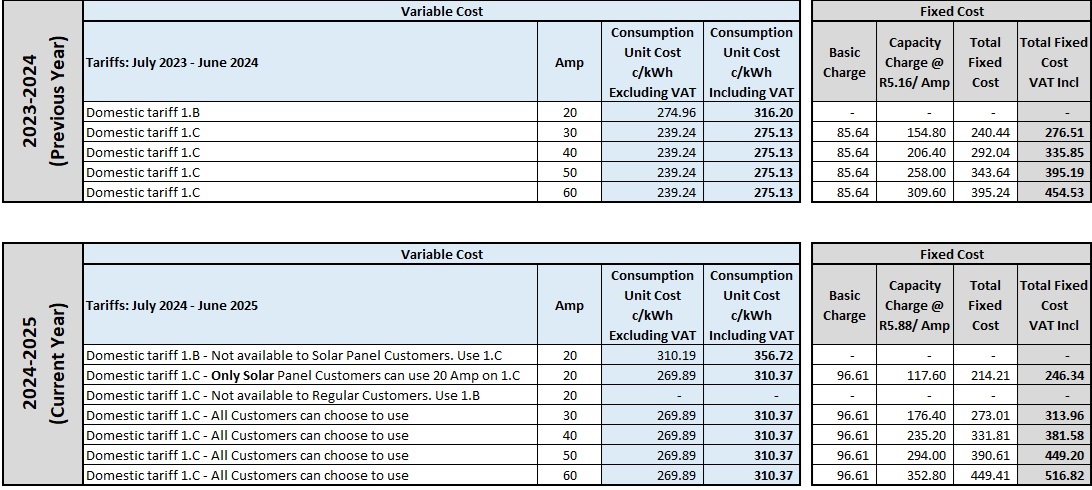GEORGE NEWS - Homeowners who have gone solar have not been exempted from paying the Amp capacity charge for electricity. However, as from 1 July they may choose a lower capacity than the minimum of 40 Amps, which previously was compulsory.
The Amp capacity charge is a set tariff paid in addition to the basic monthly electricity charge of R96,53.
Confusion was created in a letter from the municipality that appeared in the 6 June issue of George Herald where the impression was created that homeowners with solar panels would no longer be subjected to the Amp capacity charge and would therefore only be liable for the basic electricity charge of R96,53 per month.
However, in their municipal accounts for July, consumers with solar panels found that this adjustment had not been made and they were still being charged for a minimum Amp capacity.
It was brought to the municipality's attention, and the municipality responded by apologising for any confusion caused.
Municipal communications head Chantèl Edwards said, "Users who have installed solar panels will be liable for both the basic and the capacity charge for electricity, as per the approved municipal tariffs. However, the requirement for a 40 Amp connection for solar panel users has been removed from the tariffs, effective 1 July 2024, allowing these users the option to select a lower capacity."
Edwards provided the following notes on the new tariffs:
What will the charges be in terms of 2024/25 tariff book and what has changed from 2023/24?
• Users who have installed solar panels will be liable for both the basic and the capacity charge for electricity, as per the Nersa approved municipal tariffs.
• However, the mandatory minimum fixed charge of a 40 Amp capacity for homeowners with solar panels was removed from the 2024/25 tariffs to make it possible for solar panel pre-paid electricity customers to select a lower-level capacity, effective 1 July 2024.
• This allows registered solar panel customers using pre-paid electricity to select a lower capacity option.
• The tariff however still retains a basic level of fixed cost to contribute to the cost of the maintenance of the electricity infrastructure in George.
Why must you pay for access to electricity if you have solar panels?
• The municipality buys electricity directly from Eskom for distribution within the George municipal area. There are no alternative suppliers. Therefore, the cost increases granted by Nersa to Eskom directly impact the municipality.
• The municipality also incurs cost to maintain the electricity distribution network and other related overhead cost needed to supply the electricity service.
• Section 74 of the Municipal Systems Act requires that municipal tariffs must be cost reflective and sustainable. Therefore, the municipality must ensure that the tariff charges recover sufficient revenue to offset the cost of buying electricity from Eskom and then supplying that electricity within the municipal area.
• The basic or fixed cost component is meant to cover the cost associated with the maintenance of the infrastructure network. It is not an “availability charge” – this is an incorrect term.
• The variable cost or consumption charge is meant to cover the variable costs such as the bulk electricity purchases from Eskom, the network operating and related overhead costs.
 The tariffs for the previous and current book years.
The tariffs for the previous and current book years.
‘We bring you the latest Garden Route, Hessequa, Karoo news’
















